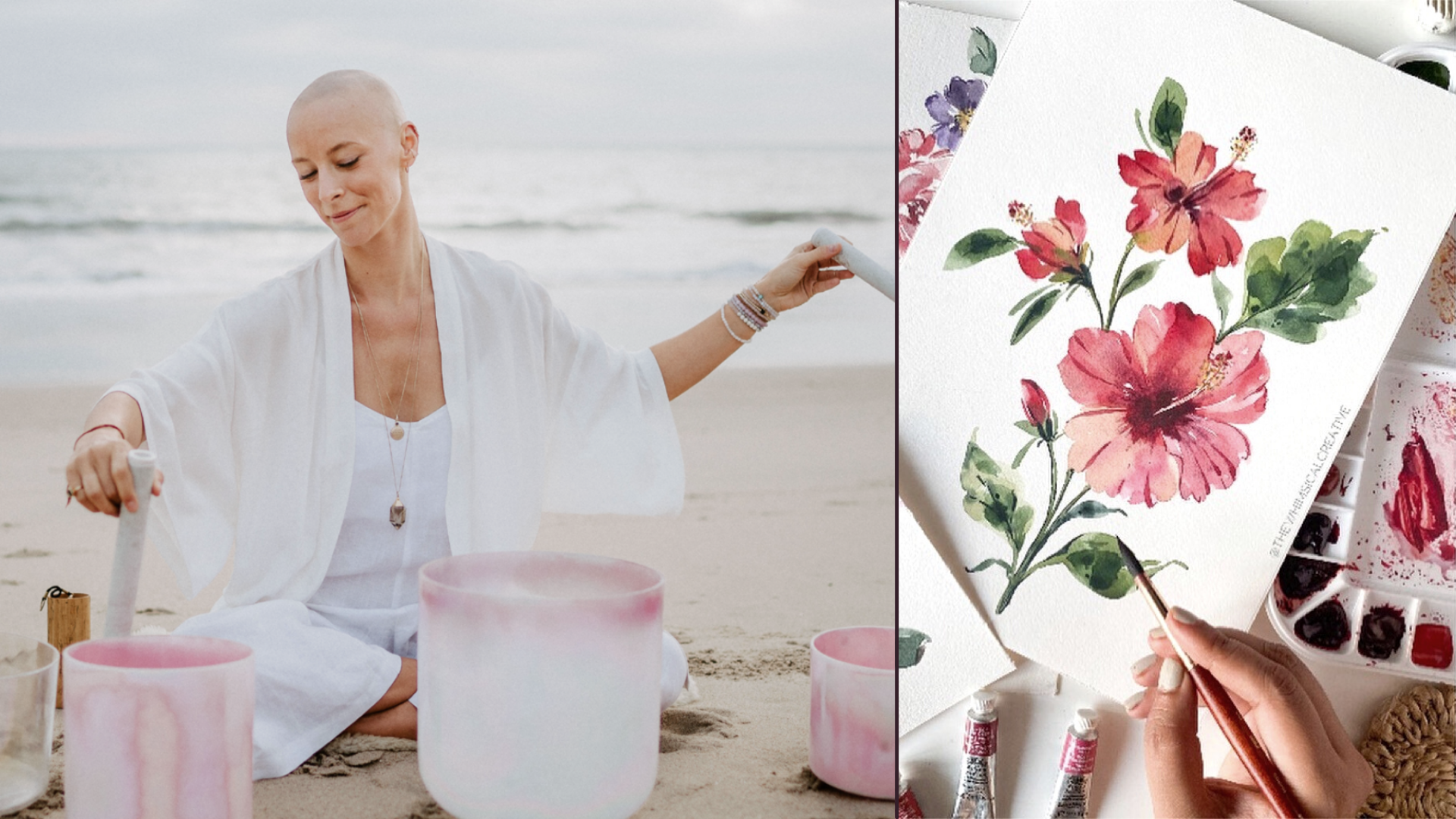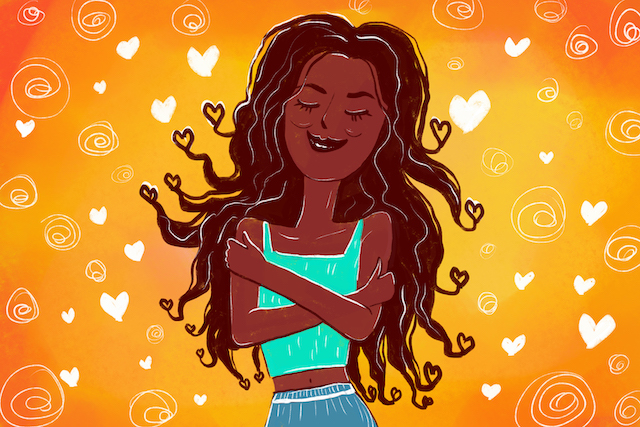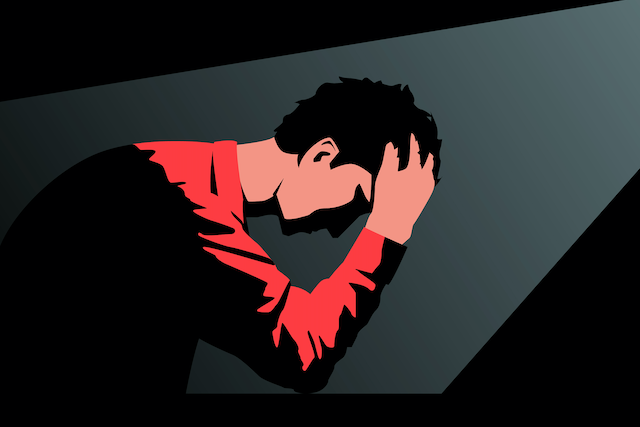
“The road to excess leads to the palace of wisdom… You never know what is enough until you know what is more than enough.” ~William Blake
Many people discover spirituality through suffering. I found the path due to years of depression, anxiety, and psychosis. Part of the awakening process is identifying behaviors, traits, habits, or thoughts that don’t serve you. As your behavior changes, so does your diet. Not just what you eat, but everything you consume, including what you listen to, watch, read, and pay attention to.
Orthorexia is the term given to an unhealthy focus on eating in a healthy way. This sounds like a paradox, as a healthy diet improves overall health. However, there’s a tipping point—eating well can become an obsession. You might develop anxiety around eating junk food, and your desire to eat well influences your social life, or you feel guilty for the times you indulge.
Your spiritual diet isn’t free from its own form of orthorexia. A healthy spiritual diet—such as a practice of meditation, reading spiritual texts, spending time in nature, serving others—boosts your spiritual health. But there is a tipping point.
What if you guilt yourself for wanting to spend an evening watching Netflix? Or eating without being mindful? Or being distracted and unfocused? Or not having the energy to serve? Or not catching yourself before reacting in anger?
What if when you feel anxiety, you don’t want to journal or meditate or unpick and dissect its root cause? What if you don’t want to spend the energy to “raise your vibration” or reframe your thoughts? What if all you want is to eat ice cream or go out with friends or have a glass of wine or watch the Champions League?
The time will come where you no longer crave junk food, for the nourishment of the path itself satiates you more than anything. Until this point, rather than trying too hard to resist, it’s much more beneficial to allow yourself to indulge, and give yourself the occasional treat, without guilt or shame.
Unconscious Escapism vs. Conscious Escapism
In psychology, escapism is defined as a behavior or desire to avoid confronting reality. I place escapism into two categories: unconscious and conscious. This is an important distinction, because most people who practice meditation and mindfulness are, to some degree, aware of when they are engaging in unhelpful behavior.
Unconscious escapism lacks self-awareness. It is a default, auto-pilot reaction to certain uncomfortable feelings. It’s not wrong, or bad, it’s just a way we learn how to cope. But in the context of spiritual growth and healing, unconscious escapism perpetuates suffering. It distracts us from discomfort and ultimately distracts us from ourselves.
However, conscious escapism explores and acknowledges underlying emotions with compassion, before choosing to indulge. Maybe you’re just tired or require a feeling of comfort, or simply want to enjoy a movie. All of these options are okay, and don’t make you any less “spiritual.” Quite the opposite: choosing to do a mindless activity can be a great act of self-compassion.
Conscious Escapism Is the Cheat Meal
Conscious escapism is choosing conventional distractions, knowing the occasional cheat meal doesn’t reflect your overall diet. It’s acknowledging where you’re at and allowing yourself to lean on mechanisms behaviors that provide temporary solace, fully aware this isn’t the ideal solution.
To get physically fit, a manageable and balanced routine and diet are better than an extreme, high-intensity routine and crash diet. Start off with high intensity, you’ll likely burn out and return to old habits. Instead, as you progress and form new habits, you might increase the intensity, or find that eating well becomes easier.
There’s no reason the spiritual path has to be any different. Over the years, I’ve experienced the extremes of depriving myself due to the belief around a spiritual person wouldn’t… (get angry, eat nachos or other unhealthy food, binge watch Netflix when feeling down, argue with their partner, enjoy buying new clothes, curse, procrastinate on tackling their finances…)
It’s only when I allowed conscious escapism that I’ve discovered what really benefits me.
Mostly, I was encouraged to try this route by supportive friends and family who could tell I needed time off. I’ve always pushed myself, I’ve always placed high standards on myself, and these traits of perfectionism were absorbed into my spiritual practice.
Over time my need for conventional escape has reduced. But that doesn’t mean I won’t skip a meditation session or watch a few episodes of Community to lighten my mood if it feels right to do so. Going too far in the other direction creates a feeling of stress or even resentment towards my practice, a result of spiritual orthorexia.
The Spiritual Diet and Discernment
A word of warning: Conscious escapism isn’t an excuse to choose the path of least resistance. The ego can hijack this concept, too, weaving a narrative of deceit that finds excuses and reasons as to why you deserve to not meditate, or why your unique spiritual path is finding enlightenment through Game of Thrones.
Be cautious of this and apply the principle of a standard diet. Understand which foods are good and which aren’t. I know that a healthy diet requires me to eat well most of the time. I know that if I always indulge in high-fat, high-sugar junk food, it’ll lead to reduced health. But I know the occasional treat is fine.
Knowing when to indulge and when to do the work is a matter of trial and error. It takes time, practice, and self-honesty. It requires self-compassion for the moments you over-indulge, knowing sometimes the road to excess leads to the palace of wisdom.
When you find momentum with your practice, you might experience a tendency to go all-in. The joy and inspiration that comes from meditation, or spiritual discussions, or insights, or noticing areas of growth or healing, create a sense of wanting more. You might feel the spiritual path is your life’s calling, and you’ll do all you can to honor it.
This is beautiful, and it’s worth appreciating the innocence of this intrinsic motivation. However, I’m here to tell you—you can take the day off. You can breathe, pause, and take time away from growth or development.
You can, unashamedly, give yourself permission to indulge in conscious escapism.
![]()
About Ricky Derisz
Ricky Derisz is the founder of MindThatEgo.com. Join his newsletter for a free copy of Mindsets for Mindfulness, a practical guide to navigating the ego on the spiritual path. He’s the instructor of The Superpower of Self-Compassion, an affordable online course with video lectures, meditations, and exercises. More content on YouTube, Facebook, and the MindThatEgo Podcast.
Get in the conversation! Click here to leave a comment on the site.
The post Conscious Escapism: The Benefits of a Spiritual Cheat Day appeared first on Tiny Buddha.
from Tiny Buddha https://ift.tt/3suI2Yc








